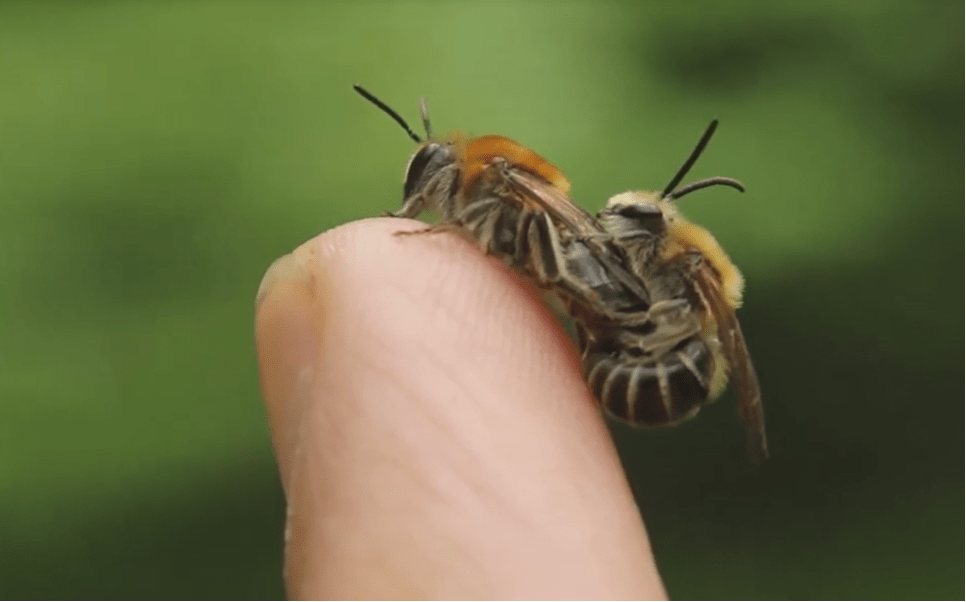Relations of Care and Collaboration in Food Systems: Setting a Research Agenda for Studying Bugs and Other Smaller Beings
Amidst the “perfect storm” of a biodiversity crisis, climate change, and agricultural production, food systems are increasingly driven by genetic engineering, robotic automation, and artificial intelligence. From producing synthetic meat to designing robotic bees, the place of domesticated and semi-domesticated animals’ roles in agriculture is increasingly questioned by scholars, climate activists, and animal rights activists alike. While such developments are often unquestioningly heralded in the media, many scholars, especially in the environmental humanities, are calling for and exploring new relations of inter-species care and kinship as a strategy to overcome the utilitarian objectification of the more-than human world amidst the modernity and late capitalism (Latour 2011, Tsing 2015, Haraway 2016, Tsing et al. 2017, Marshman 2019, van Horn et al. 2021). Alongside the interspecies relations turn, new conceptions of value and community are also increasingly seen as an avenue for overcoming the fetishization of economic utility at the heart of the global environmental predicament (Singh 2015, Bellacasa 2017, IPBES 2022). Substantively incorporating arthropod conservation into biodiversity policies, however, will require a paradigm shift of significant proportions, as humankind reckons with its interdependency on the non-human world and strives to understand the complexity and ambiguity of the myriad species with which we share the planet (Leandro 2023). Agricultural transitions in particular face a reckoning, as shifts towards high-tech pollination and robots seem to replace or supplement living pollinator biology. In North America, the Eastern Bumblebee (Bombus impatiens) and the Blue Orchard Bee are heralded by some close observers as viable, efficient native insect pollinator alternatives to the current predominance of honeybees for commercial pollination. All these solutions raise important questions for research, as they raise questions about the cultivation and growing use of different bees for their risks of pathogen and disease transmission and present us with important questions about the goals and socio-cultural values that seek to authorize and legitimate such substitutions.

Building from such scholarship, our day of work, dialogue, and scholarly exchange centers relations between humans and species other than the most commonly domesticated animals (cows, horses, goats, sheep, chickens, etc.) as agricultural producers. It focuses empirically on arthropods, including honeybees, wild bees, crickets, spiders, beetles, microbes, and other “little things that run the world,” as the noted biologist E.O. Wilson put it. As the paradigms of biodiversity conservation policy and awareness shift toward new understandings of value, what adherent shifts in relations of knowledge exchange, gratitude practices, cultivation, and control become possible? Related, the discussion aims to deepen and expand upon the following questions:
- What notable points and practices mark the spectrum between total human control and the flourishing of the new wilds within agroecological practices? What other axes of interaction (i.e. epistemologies, cosmologies) can be recognized in relation to plants, soils, and other ecologies?
- How and why is humanity reimagining relationships with entomofauna, soil microbes, and other smaller-scale forms of animal life as a praxis? What do these relations, policy initiatives/ regulations, and on-the-ground spaces of collaborative work signal to society about relations of inter-species inclusivity, biodiversity, and desires for equitable planetary cohabitation, amidst the extinction crisis and the Anthropocene?
- How are different visions for sustainable and equitable agri-food futures imagined and contested in relation to the agricultural work of insects, microbes, and other small-scale fauna?
Social science-based approaches into both the theoretical and empirical dimensions of care and relations with microbes, arthropods, and entomofauna are especially of interest amidst this day-long workshop. We hope that through this small collaborative setting, participants will be able to establish a foundation for collaborations toward the construction of a shared research agenda, with the goal of producing a work plan for longer-term investigations and scholarship into how to best understand and convey the paradoxes, opportunities, and conflicts within contemporary agro-ecological paradigms as they intersect with bees, insects, microbes, and other “small” species. Discussion of scholarly outputs and formats will also be included in the day, with attention to the possibilities for communication modalities and desired audiences for such work.
Programme
- 9:30 Coffee/ Welcome.
- 9:45 MAK’IT intro
- 9:50 Introduction: Interspecies Relations: Who cares, and why care? Eve Bratman, Associate Professor of Environmental Studies, Franklin & Marshall College and FIAS Fellow, MAK’IT
- 10:00 Participants introduce themselves through 5 slides – each 5 minute of presentation per person, with one slide about what an interdisciplinary dream project collaboration would entail
- 11:00 Coffee break
- 11:15 Keynote by Richie Nimmo (University of Manchester): Relations of Inter-species Care in Conservation
- LUNCH: 12:30 – 14:00 Patio (ground floor)
- AFTERNOON 14:00 – 17:00
- 14:00 DISCUSSION 1: Theoretical approach
- 14:30 DISCUSSION 2: Scope of empirical focus
- 15:15 Short break
- 15:30 DISCUSSION 3: methods, collaboration(s) design(s), publication venues and public impact goals
- 16:30 WRAP UP AND NEXT STEPS – Mapping out a plan of action, delegation of tasks, next steps, opportunities of interest, funding, bandwidth, roles, commitments, etc.
- 18:00 COCKTAIL